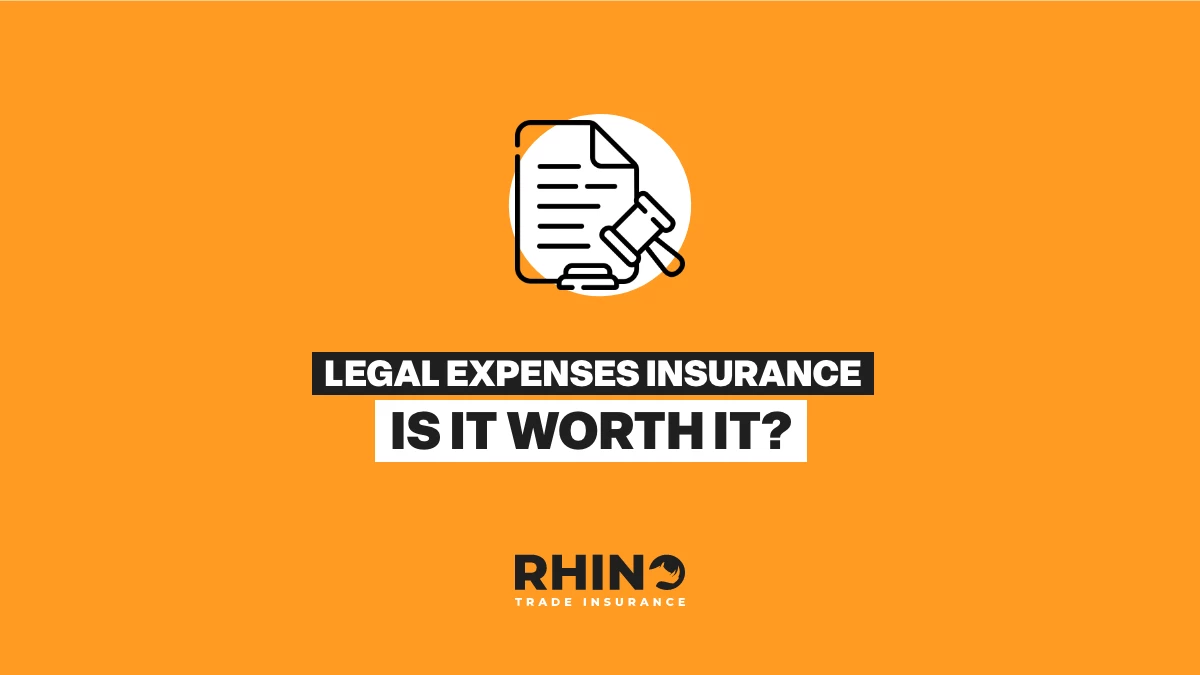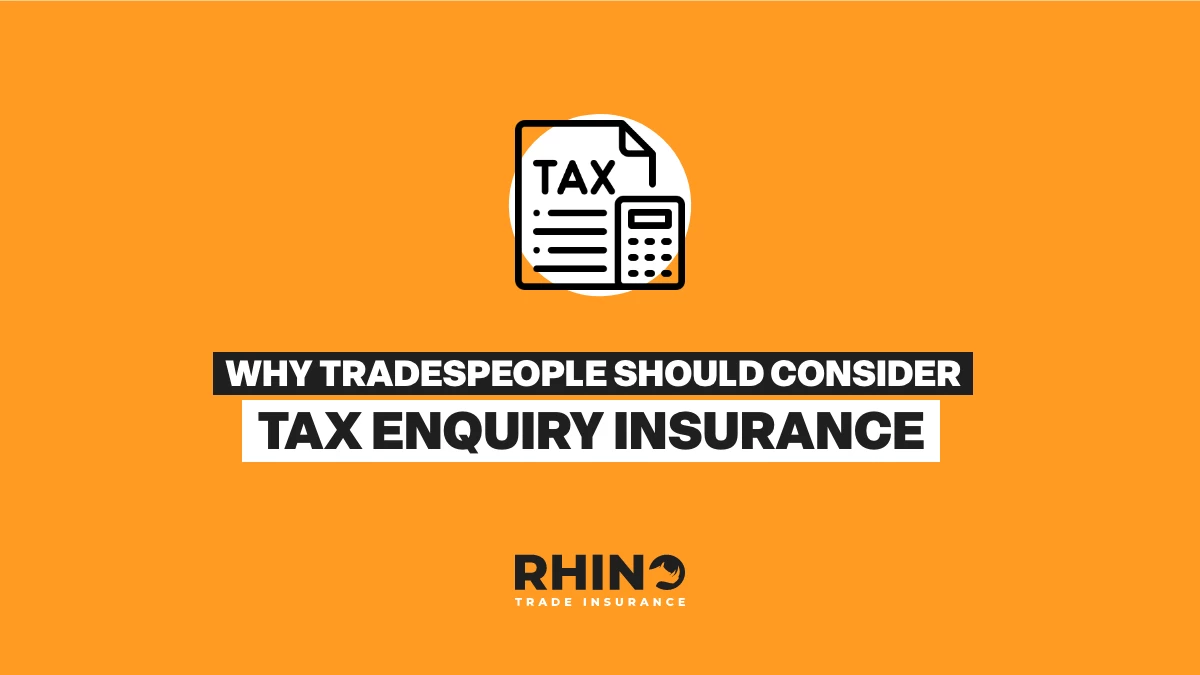
Legal Expenses Insurance – Is it Worth It?
Legal Expenses Insurance for tradespeople explained—what it covers, when you might need it, and how it protects against costly legal fees.
There’s more than one kind of insurance that self-employed people need to run a successful small business. The different insurance types can get confusing, especially when they sound similar.
Instead of pondering the differences between Employer’s Liability Insurance and Public Liability Insurance, read this handy article instead.
No need to thank us – insurance is one topic we could talk about all day long!
Employer’s Liability Insurance and Public Liability Insurance are often mentioned in the same breath, but in reality they’re different policies which cover different things. Let’s examine the two and highlight the key differences between them.
First up, let’s look at Employer’s Liability Insurance
Employers' Liability Insurance offers protection for you, as a small business owner, against claims made by employees who are injured or become ill as a result of working for you.
All jobs come with a risk of personal injury, accident and illness incurred in the line of work. Unfortunately, trades work has a higher incidence of these types of incidences relative to other types of work.
So, there’s a chance that someone working for you might become injured or sick thanks to their job. If this happens, they may be within their rights to make a claim against your business for compensation.
If this were to happen and Employer’s Liability Insurance didn’t cover you, you’d have to cover the costs associated with such claims yourself.
You could be a sole trader, director of a limited company or part of a business partnership, it doesn’t matter. If you employ anyone, they are within their rights to make a claim should anything happen to cause harm to them.
From lawyer’s fees to hospital bills, it goes without saying that these claims can be incredibly expensive to settle (we’re talking multi-millions), which is why it’s so important to have Employer’s Liability Insurance in place.
Public Liability Insurance provides protection for your businesses against claims made by members of the public who are injured or have their property damaged as a result of your business operations.
Think of it like a giant financial safety net. No, Public Liability Insurance won’t stop accidents from happening. But Public Liability Insurance covers you, the policyholder, financially in case of property damage, injury or accidental death being caused to someone (not directly employed by you) in the course of your work.
Legal fees, medical bills, loss of income and compensation are all costs these types of claims bring. But with Public Liability Insurance in place, your insurer will bear the cost, and your business’s bottom line will be unaffected.
Claims on Public Liability Insurance are pretty common. Although most are for things like property damage and minor injuries, more serious claims like major property damage, serious injury and death do happen every single year in the UK.
Employer’s Liability Insurance is for employers only
Well, the clue’s in the name. One of the main differences between Public Liability Insurance and Employer’s Liability Insurance is that Employer’s Liability Insurance covers you, the business owner, against claims made by people in your employment.
Public Liability Insurance covers claims made by people not in your employment but who temporarily engage with your business, including customers, suppliers, staff not employed by you (e.g. staff working in a public building you’re carrying out work in), and members of the general public.
One is a legal requirement, the other isn’t
Another key difference between the two is that Employer’s Liability Insurance is a legal requirement in the UK if you’re an employer. Public Liability Insurance is technically optional, although you’re unlikely to secure the contracts you want without it, as many customers and clients won’t work with contractors who don’t have at least Public Liability Insurance in place.
You need Employer’s Liability Insurance as soon as you become an employer in the UK. You shouldn’t be uninsured even for a day, as you can incur hefty fines from the government of £2,500 for each day that you’re without cover. What’s more, you must be insured for at least £5 million by law, and you must use an authorised insurer (such as Rhino).
Your business needs Public Liability Insurance as soon as it begins trading. This isn’t a legal requirement, but it’s just plain common sense, as an incident could happen on your very first day of operations.
Imagine how you’d feel if you had ‘sort Public Liability Insurance’ on your to-do list but something unfortunate happened before you’d had the chance to arrange cover.
Any self-employed tradesperson needs a good Public Liability Insurance policy in place from day one.
If you’re an employer, you need both Public Liability Insurance and Employer’s Liability Insurance.
When it comes to these policies, there’s simply no short-cut or way around it. If you plan on a long and successful career in your chosen trade, you need them in place.
At Rhino Trade Insurance, we’ve sorted thousands of tradesmen and women in the UK with their Public Liability Insurance and Employer’s Liability Insurance over the past few years. Our customers can go about their work knowing that if anything happens, Rhino has their back.
With us, you shouldn’t worry about having ‘sort insurance’ on your to-do list for very long. We make it so simple for you to sign up, starting with our handy quick quote engine, which will have you an estimation in minutes.
You’ll get your documents in minutes, and cover will apply right away. You’ve then got 14 days to change your mind for a full refund, so you have nothing to lose.
If you have any questions, just contact us. Call us on 0116 243 7904, email us at info@rhinotradeinsurance.com or simply type a message to us using the chat function on our website.
Legal Expenses Insurance for tradespeople explained—what it covers, when you might need it, and how it protects against costly legal fees.
Worried about a tax investigation? With HMRC cracking down in 2025, Tax Enquiry Insurance from Rhino gives UK tradespeople expert protection and peace of mind.
Rhino Trade Insurance CEO Troy Stevens joins industry leaders at the House of Commons to discuss the rising issue of tool theft—highlighting its impact on UK tradespeople and the importance of awareness and protection.
Tell us your trade and get a tailored insurance quote for your business in seconds
Our team of experts are available to talk to Mon-Fri 08.30-17.30 and Sat 10.00-14.00

